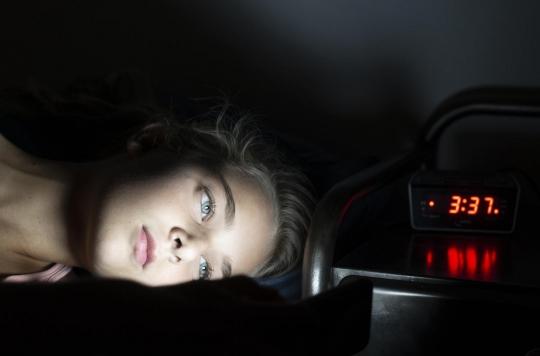Not getting enough sleep changes our behavior and impacts our social relationships.

- The less you sleep, the less you want to interact socially.
- In turn, other people perceive you as more socially distant, which increases social isolation.
- In turn, other people perceive you as more distant, which increases social isolation.
Lack of sleep is often the harbinger of a long day. Unfortunately, a recent study has shown that in these cases, coffee does not help us recover. Research, conducted by American researchers from the University of Berkeley and published in the journal NatureCommunicationsreveals that too short a night has effects on social relations and makes people tired as less sympathetic and uncooperative.
Lack of sleep contributes to loneliness
Lack of sleep can have a devastating effect on social life. “We humans are a social species. Yet sleep deprivation can turn us into social lepers”, sums up Matthew Walker, lead author of the study. He and his team of researchers found that brain scans of sleep-deprived people as they watched video clips of strangers walking towards them showed powerful social repulsion activity in neural networks that are typically activated when humans feel that their personal space is invaded. Sleep loss also dulled activity in brain regions that normally encourage social engagement.
The social effect of lack of sleep is twofold. “The less you sleep, the less you want to interact sociallyexplains the researcher. In turn, other people perceive you as more socially repulsive, further increasing the severe social isolation impact of sleep loss. This vicious circle may be a significant contributing factor to the public health crisis of loneliness..”
Less desire to reach out to others
To assess the social effects of poor sleep, researchers conducted a series of experiments using brain imaging, standardized measures of loneliness, video simulations and surveys. They first tested the social and neural responses of 18 healthy young adults after a normal night’s sleep and an all-nighter. Participants watched video clips of individuals with neutral expressions walking towards them. When the person in the video got too close, they pressed a button to stop the video, which records how far the person let the person in the video get closer.
The sleep-deprived participants held the approaching person at a significantly greater distance — between 18 and 60 percent further — than when they were well rested. In sleep-deprived brains, the researchers found increased activity in a neural circuit known as the near spatial network, which is activated when the brain perceives potential human threats. In contrast, another circuit in the brain that encourages social interaction, called the theory of mind network, was found to be shut down by sleep deprivation, compounding the problem.
.

















